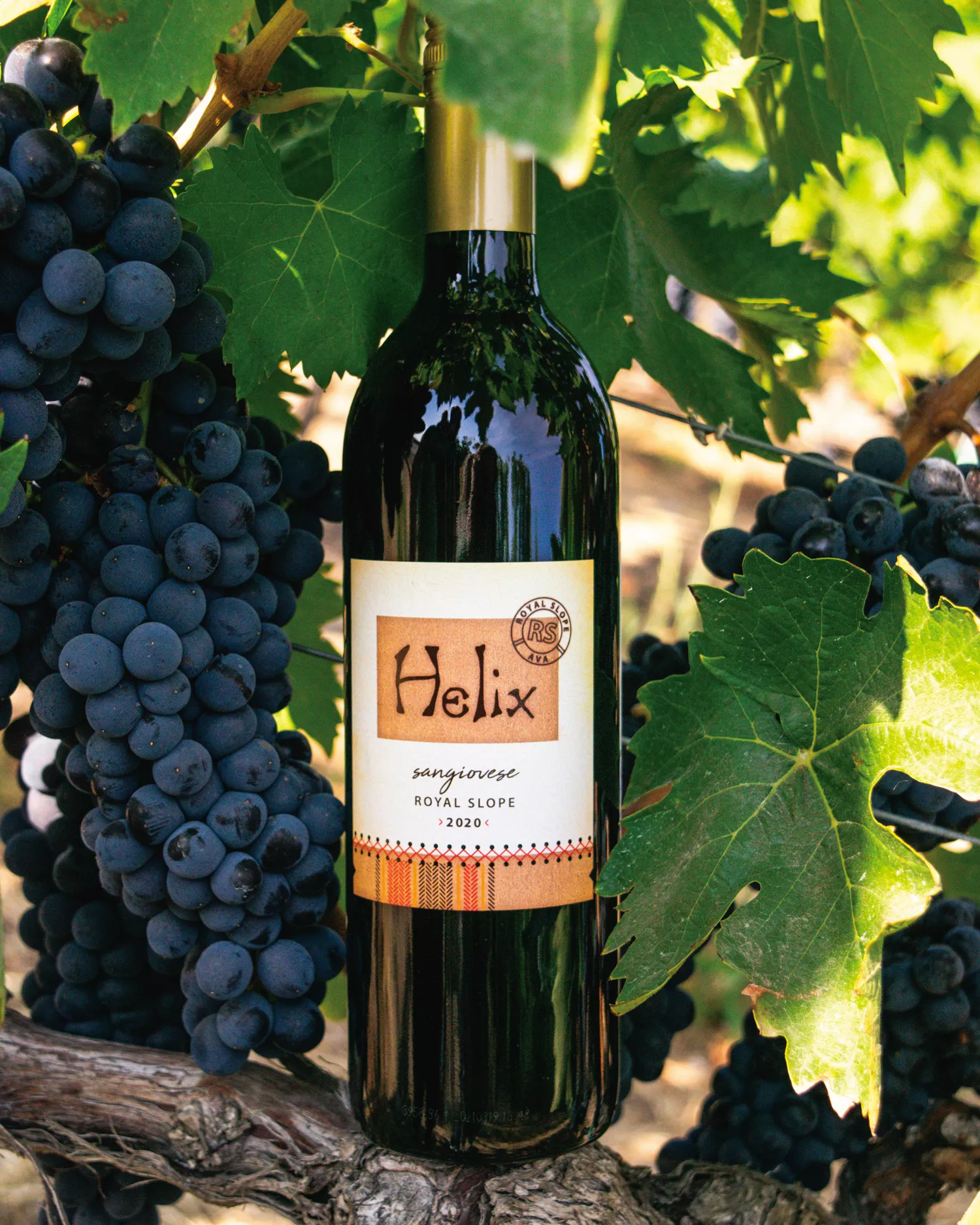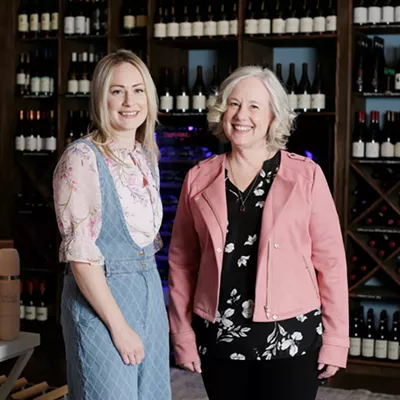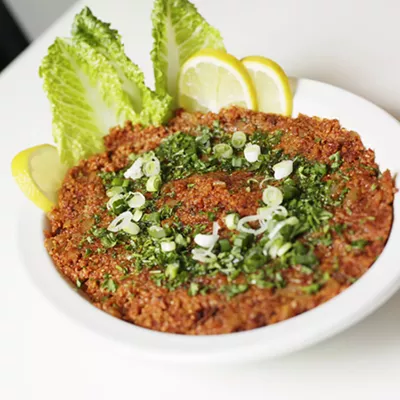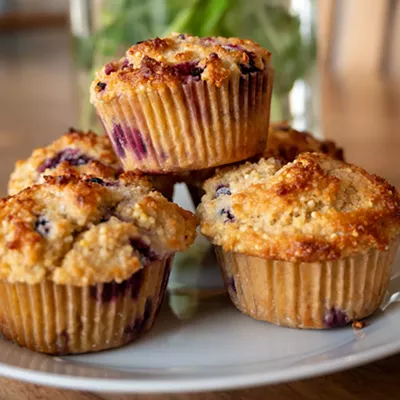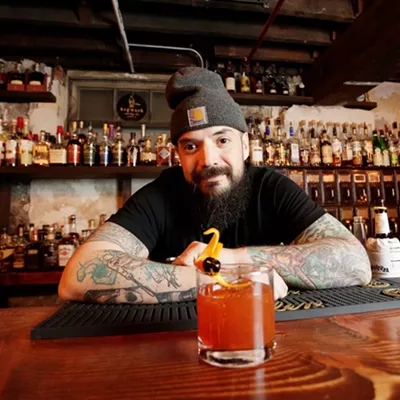Helix Wines' presence in downtown Spokane dates back only to 2017, but the people behind the wine have been around the Inland Northwest for a whole lot longer.
The Tucker family's connection to the Columbia Valley can be traced to the days of the Oregon Trail, which is what brought John and Susan Tucker to the fertile farmland outside what is now Helix, Oregon — about midway between Pendleton and Walla Walla — in 1883. Generations later, their descendants are still taking advantage of the region's ideal growing conditions. Instead of growing wheat though, the Tuckers are now in the business of making wine.
"The Tucker family came on the Oregon Trail and homesteaded, and now this generation is continuing on the agricultural route. They've been a diverse agricultural family, but mostly wheat in the past," says Spokane Tasting Room Manager Steve Bledsoe.
Appropriate for a family descended from early pioneers, the Tuckers jumped on the Washington wine bandwagon back when the industry was in its infancy. The fourth generation transitioned from wheat into wine in 1989. In 1997 the Reininger brand was founded in Walla Walla, and a few years later Helix was born out of Reininger.
"Chuck Reininger was the fifth bonded winery in Walla Walla in 1997, and Chuck is married to Tracy Tucker. Tracy and her two brothers and parents sold their fifth-generation wheat farm in Helix, Oregon, around 2000 and went into business with Chuck to create Helix," says Bledsoe.
Helix and Reininger are now sister brands both originating from the company's 4,800-square-foot production facility in Walla Walla, where they produce 9,000 cases of wine annually, with about two-thirds going to the Helix brand.
Unlike previous generations, the family is no longer in the business of growing. They source their grapes from 10 vineyards around the Columbia Valley. Reininger wines source exclusively from the Walla Walla Valley growing region, while Helix sources grapes from nearby areas like the Horse Heaven Hills, Royal Slope, Wahluke Slope and White Bluffs.
Of the 20 to 25 wines Helix and Reininger produce each year, only a handful are available in stores. This means the best way to get the full experience is at one of their two tasting rooms, one located at their production facility in Walla Walla and the other in Spokane across from the Historic Davenport Hotel.
While not related to the Tuckers, Bledsoe, a Spokane native, also got into Washington wine back in the early days.
"I started tasting wine here in Spokane," says Bledsoe. "I started tasting wine with the owner of the fifth winery in Washington state, so it was very early on in the '80s."
The experience and knowledge that Bledsoe and the rest of the crew have of not just Helix and Reininger wines, but wine in general, is shared with those who come in to try the rotating selection available.
Helix and Reininger release their wines four times each year, in March, May, October and December. The upcoming May release features a 2020 Reininger Syrah and a 2021 Helix blend of grenache, cinsault and mourvédre.
One of the more popular offerings, released in March, is their carménère.
"It was considered to be extinct for about a hundred years until a French winemaker went to Chile in 1993 and a Chilean winemaker showed him his Merlot, but the leaves were red. So they took a sample, sent it to UC Davis, and the analysis showed sure enough that it was the carménère," says Bledsoe. "Chuck [Reininger] was the very first winemaker to produce carménère in the state; he was one of the three people responsible to bring it in."
Helix's innovative approach doesn't stop there, though. Which is good news for readers, as the carménère is likely to be sold out by the time this magazine hits newsstands.
"We also have a wine called CPR Red Blend," says Bledsoe. "There are eight different grape varieties... So, it's kind of like a living thing."

